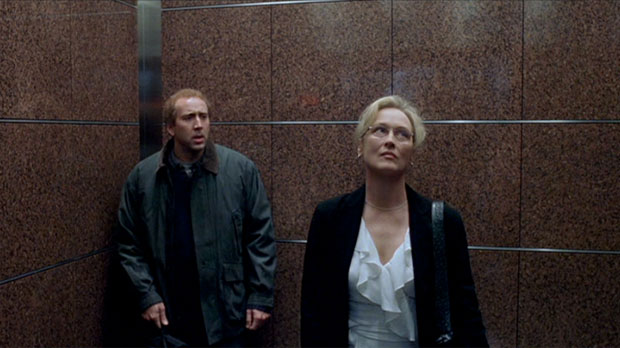 Back to selection
Back to selection
How to Option a Book for Film Adaptation
 Adaptation
Adaptation The following is a guest post by veteran entertainment attorney Robert Zipser. It originally appeared on his official website.
“In the motion picture business, nothing is more important than rights.”
–Prominent Business Affairs Executive
Hollywood has loved books ever since the days of silent films. It always will. Sometimes you will hear grumblings from studio executives and producers that acquiring motion picture and television rights to books costs too much. They vow to cut back on it. Pay no attention to this babbling. Hollywood’s love for books will endure for two simple reasons: First, books offer built-in wonderfully developed stories with fascinating plots and compelling characters; second, popular books (think the Harry Potter series as the ultimate example) have throngs of rabid fans (often teenagers and nerdy adults) who will be rushing to the box office to see the motion picture based on their beloved book. Five of the nine films nominated for this year’s Best Picture Oscar were based on books, including the winner, Argo. For these reasons, it is inevitable that you, the independent film producer, shall at some point want to acquire the motion picture and television rights to a book. This article will set forth the basic deal points of a book option agreement and hopefully provide some guidelines. I do not discuss every term. I will focus, for the most part, on the major business points. Other legal terms such as assignment, governing law, modification, etc. can be important, but can be readily learned from a good entertainment contract form book. If you are an experienced producer, you may find some of this information fairly basic. But hopefully there will be some points that will be helpful to you as well as to the novice producer.
In the United States, motion picture and television rights to a book are almost always reserved to the author and not granted to the publisher. This means that you will be negotiating with either the author or, if the author is at all successful, the author’s agent. But let’s get real. Unless you are super-rich or super-connected, you will not be looking for best-sellers which are very expensive and snatched by the studios. More likely, you will be targeting a book which is at least a few years old by an author who may be known in his or her genre, but is not famous. For this article, we will pretend that you are seeking to acquire the motion picture and television rights to the mystery novel Looking for Luigi by Joe Scribbler. Scribbler is fairly well-known in the mystery field but is not a famous author. He did have one television motion picture produced based on another of his books 10 years ago. Looking for Luigi is five years old. Scribbler is represented by Slick Larry at William Morris Endeavor (I threw in a real agency for laughs. Slick Larry is of course fictional).
Before doing anything, you must do your homework! It is essential that you search the registrations and recorded rights transfers for the book listed in the database of the U.S. Copyright Office to make sure that a) there is a copyright registration for the book in the author’s name; and b) there are no conflicting options, assignments, or liens, or registrations for productions based on the book. This is your “chain-of-title” research. The best way to do this is to purchase a copyright report from a copyright search firm. But this is expensive. If, like most indie producers, you are living off spaghetti every night, you can accomplish basically the same goal by searching the online records of the U.S. Copyright Office for free as long as the records were entered on or after January 1, 1978. This is not foolproof. Only recorded options and transfers of rights are listed. But the studios and most experienced producers will have recorded such options and other transfers. You will hopefully not find any current or conflicting options, or other transfers of the rights that you want to acquire, or liens, or productions. If you do find current or conflicting options, or other transfers of the rights that you want to acquire, or liens, or productions, don’t move forward.
In the case of a book that has been out for at least a few years, it is possible you might find a prior option recorded. In this case, you must of course verify with the agent that that option has expired and was never exercised and you should ask for redacted (money terms deleted) copies of the prior agreements showing the option periods and dates. In addition, you must confirm that there are no assignments of rights to that prior production company or productions by it (or its assignees) based on the book. Although you will be requiring the author to warrant that the rights are clear, mistakes can be made and you do not want to purchase a lawsuit!
Assuming the chain-of-title is clear, you will also need to acquire a Publisher’s Release from Scribbler’s publishers. This is a short form that simply confirms that the publishers do not own or control any of the rights that you are seeking to acquire. You should make your receipt of this form a condition precedent to your obligations under the option agreement. But it is almost never a problem.
